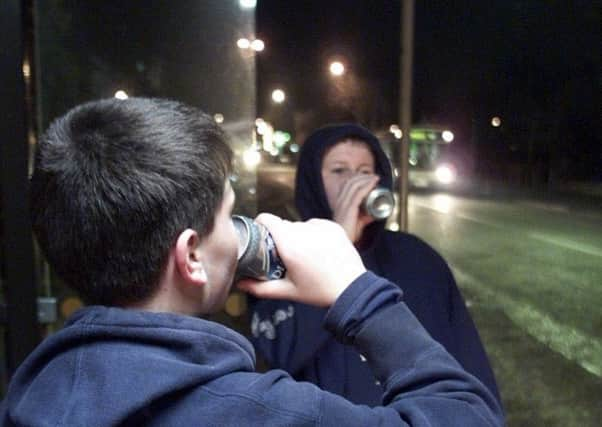Scotland on Sunday letters: Wind farms | SNP


YOUR article “NHS spending millions on treating addicts as young as 11” (News, 14 June), highlights the unhealthy relationship Scotland has with alcohol, where alcohol consumption is 17 per cent higher than the rest of the UK.
The BMA supports a ban on the alcohol industry advertising before the watershed and during events aimed at under 18s, to protect young people from the influence of alcohol advertising when they are at a particularly impressionable age. Decreasing the influence of the alcohol industry along with early education on the dangers of alcohol will hopefully work together to decrease the numbers of young people negatively affected by alcohol.
Advertisement
Hide AdAdvertisement
Hide AdIn June 2012 the Scottish Government passed legislation mandating a 50p minimum unit price of alcohol, to try and limit the availability of alcohol. However, implementation of this has been held up by legal challenges from the Scotch Whisky Association. The BMA has urged the SWA to drop the challenges to help protect Scotland from dangers of easily accessible, cheap alcohol.
Dr Sally Winning, deputy chair, BMA Scottish Council
Borders Railway to be applauded
THE article by Alastair Dalton (“Fantastic new railway – shame about the state of the trains…”, 7 June) was interesting but perhaps portrayed a negative outlook. As someone who has worked in the railway industry for many years and has experienced several re-openings of Scottish stations and routes, I feel that a response is necessary.
While it would be great if ScotRail had all the Class 158 units diagrammed for the new Borders Railway refurbished in time for the passenger opening, the reality of life in the franchised, grant-supported passenger railway is that the rolling stock assets have to be maximised and worked hard.
My colleagues in ScotRail have worked very hard to plan the Borders Railway units through the workshops for their refurbishment, whilst maintaining normal services across Scotland with the Class 158 fleet. What is really important is the fact that passenger rail service is being restored to the Borders after such a long time of absence. ScotRail will make sure that the unrefurbished Class 158s are clean and in good condition, which is after all their job.
I have been the sponsor for two Scottish railway electrification projects, Paisley Canal, and Rutherglen and Coatbridge. The release of diesel units from these routes has allowed ScotRail to allocate the Class 158s to the Borders Railway without leasing additional rolling stock. That surely has to be applauded in these times of pressure on public finances.
When Stirling to Alloa and Airdrie to Bathgate were re-opened to passengers, existing rolling stock was diagrammed without money being spent on refurbishing the stock. The Borders Railway is no different, and my plea as a railway person is that the local people make good use of their new railway line. It has cost a lot of money, taken a lot of government commitment and also commitment from the UK railway industry. Refurbished rolling stock is on its way, but let’s exercise patience and concentrate on the positive event planned for September 2015.
Kevin A McCallum, Glasgow
SNP like rabbits in headlights
A GOOD and interesting article by Andrew Wilson appeared in Scotland on Sunday (Scrutiny, 14 June) but he ignores the fundamentals which the SNP leadership now appear to have recognised. Full Fiscal Autonomy is impossible within the UK as this means UK taxpayers guaranteeing unfettered SNP borrowing, Scotland’s ongoing £10 billion-£15bn fiscal deficits (current plus capital accounts) are impossible to finance without a central bank (contrast and compare Greece and Iceland as examples).
If Scottish tax revenues are to match public spending the private sector will have to grow by 40 per cent to 60 per cent in real terms. The alternatives are 20 per cent to 30 per cent cuts in public spending or tax hikes of similar proportions, both political and economic suicide.
Advertisement
Hide AdAdvertisement
Hide AdThis appears to leave those wishing for independence with hard choices:
1. Accept the enormous economic hit of independence. This was Alex Salmond’s policy but appears not to be Nicola Sturgeon’s.
2. Grow the Scottish economy fast and enormously. Everyone would be delighted if this was achieved but there are no signs of how it might be done.
3. Create Scotland’s own central bank and currency and become truly independent. The SNP appears not to favour this difficult and risky strategy.
So for the moment it seems that the SNP leadership are frozen, like rabbits, in the headlights of reality. Will their 2016 election manifesto provide a coherent plan?
Dr Duncan McKenzie, via email
Slaughterhouses need more CCTV
REMOVING independent meat inspectors from slaughterhouses (News, 14 June) would be a move in the wrong direction. Instead of reducing the level of independent inspection in the livestock industry we should be increasing it to improve standards of animal welfare and food hygiene. Using CCTV and webcams would allow increased monitoring and encourage higher standards without greatly increasing costs. If the EU drops standards then the UK should refuse imports of meat produced under systems which do not match our own food hygiene and animal welfare standards.
John F Robins, Animal Concern
End of wind farm subsidy welcomed
I WAS delighted to hear that the Government is to end wind farm subsidies in 2016. The SNP’s blinkered view of wind turbines is to ignore the facts that they don’t work at all if there isn’t enough wind and have to be stopped if the wind becomes too strong, making wind turbines the most unreliable form of energy requiring alternative back-up to keep the lights from going out.
Dennis Forbes Grattan, Aberdeen